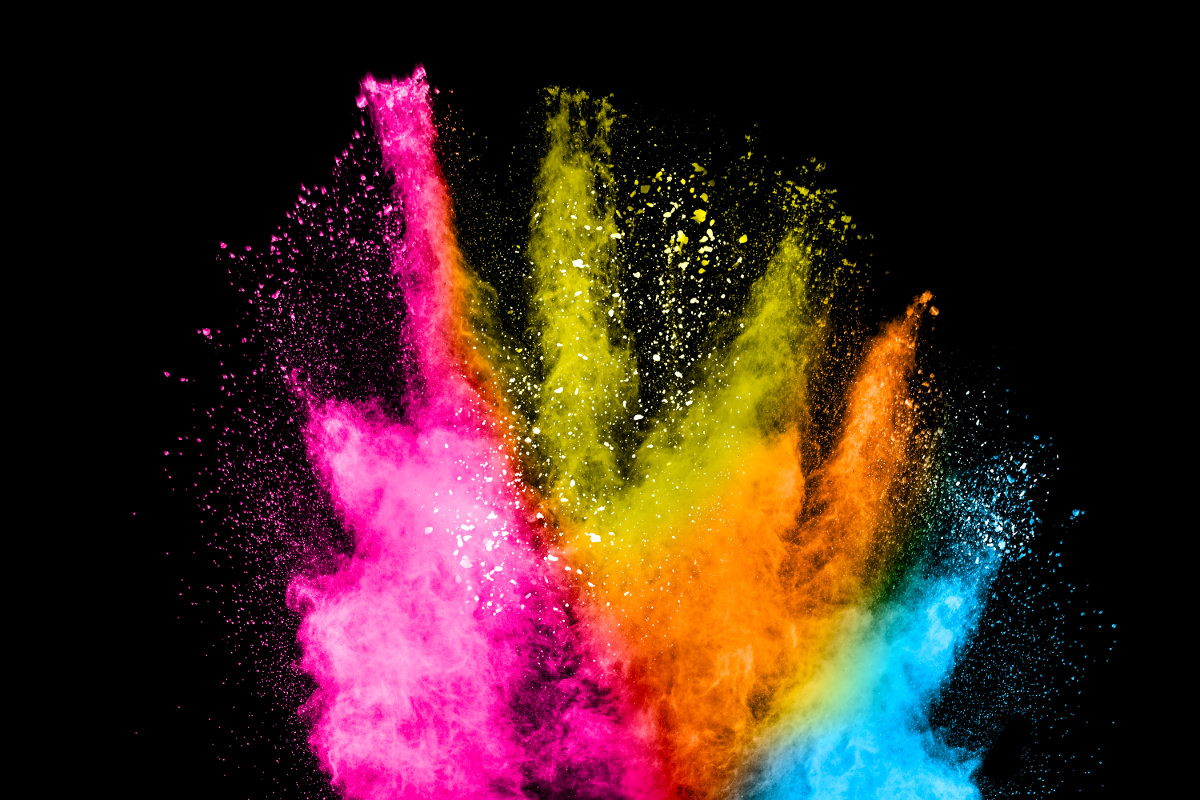Activism
The Creeping Orthodoxy of the Neurodiversity Movement
Neurodiversity is on the right track, and I support the agenda as it builds upon the civil rights movement.

It is no longer fashionable to talk about autism spectrum disorders among certain quarters of the ASD community without reference to “neurodiversity.” As an individual on the autism spectrum myself, I was once firmly planted in the neurodiversity camp. However, over time, my enthusiasm for the movement has waned, even though I still support what they are trying to accomplish in general terms.
At a glance, the neurodiversity movement operates as an extension of the organizing principle that animated previous struggles for civil rights and acceptance. Like members of other minorities and marginalized groups, individuals with mental health issues and the developmentally disabled were subject to discrimination and persecution. There was a time when institutionalizing a difficult child was considered humane, and cold mothers were cruelly blamed for ASDs.
Disability advocates helped lobby for and implement the historic Americans with Disabilities Act (ADA), signed into law by George H.W. Bush in 1990. A few years later, Australian disability rights advocate and sociologist Judy Singer coined the term “neurodiversity,” which she understood to be an addition to the existing political categories of race, class, and gender. Writing for the Atlantic in 1998, Harvey Blume amplified this sentiment when he wrote:
Neurodiversity may be every bit as crucial for the human race as biodiversity is for life in general. Who can say what form of wiring will prove best at any given moment? Cybernetics and computer culture, for example, may favor a somewhat autistic cast of mind.
The neurodiversity movement is a much-needed historical correction and has brought undeniable progress. It aims to remove social and environmental obstacles which would prevent the flourishing of autistic individuals while opposing medical and behavioral interventions seen as making an autistic person “indistinguishable from his peers.” All this appealed to my progressive belief in the pursuit of social justice, and in the importance of not depriving any human being of their basic humanity and dignity. Neurodiversity offered me the opportunity to belong to a social group that had been elusive in grade school and high school. Belonging to a group of like-minded individuals is a powerful motivator when one’s own personal voice has felt marginalized for most of their life.
With the dot.com boom and the rapid proliferation of internet use, this idea grew into what was mostly an unorganized movement at first. But within a few years, several autism advocacy groups sprang into existence with the goal of integrating autistic people into mainstream society. In 2015, Steve Silberman published his influential book, Neurotribes, which electrified the movement. It gave some autistic people a sense of self-confidence they'd never had before, and the movement became much better organized. In the decades since Judy Singer wrote her Master’s thesis on neurodiversity, much of what she presumably hoped to see has come to pass. For example, one of the movement’s strongest advocates, John Marble, was appointed by President Obama to the Office of Personnel Management (though he “came out” as autistic later). Similarly, autistic self-advocate, activist, and scholar Ari Ne’eman served on President Obama’s National Council on disability. Autistic people are visible today. There are autistic journalists, actors, consultants, politicians, lawyers, activists, billionaires (or at least one billionaire), researchers, and even a self-proclaimed psychic. While there has no doubt always been autistic individuals in these professions, they now are well-known, and their accomplishments ought to be celebrated.
The disgraceful history of Western eugenics has made a number of neurodiversity advocates hostile to genetic research. They worry that screening for genetic markers in the womb will lead to the widespread abortion of neurodiverse babies. They also tend to be suspicious of research into the etiology of ASDs, research that employs any kind of ableist or pathologizing terminology, and pretty much any ASD research conducted by non-autistics. A common slogan used by the movement is, “Nothing about us without us.” Neurodiversity advocates will tell you that they are sick of having their lives researched, analyzed, and described by non-autistic people using derogatory terminology as if they are zoo animals. They want to be the authors of their own lives. These are, at the very least, understandable anxieties and goals.

However, the movement has gone too far in its rhetoric and behavior. In 2019, autistic self-advocate Tom Clements wrote an article for the Guardian in which he criticized the movement based on his personal experiences as an autistic person, and was roundly attacked by neurodiversity advocates. Another self-advocate, Jonathan Mitchell, wrote a similar article for the Spectator and also found himself under attack. It seems that “Nothing about us without us” only applies to those whose opinions align with the in-group.
This militancy has reached a point where it is making national headlines. The Today Show documented instances in which the parents of autistic children were bullied by neurodiversity advocates online for expressing their views. Neurodiversity advocates claim this story is overblown and features an example of someone who supports Autism Speaks (an organization hated by the neurodiversity movement). Still, the problem persists. Spectrum News reported a story in 2019 about a puppet show that had to be canceled following the circulation of a petition that gathered 12,000 signatures, even though the author of the show was the carer of an autistic child who wrote the script seeking input from people on the spectrum.
The neurodiversity movement's central claim is that autism is a difference, not a disorder. Autistic people struggle because society is not sufficiently accommodating, not because there is anything inherently wrong with autistic people. This is illustrated by what Damian Milton calls the “double empathy” problem, which challenges the prevailing notion that autistic people lack empathy. Milton argues that this is a two-way street—neurotypicals lack just as much empathy towards autistic people as autistic people lack towards neurotypicals. This is simply because the two groups communicate in entirely different ways.
Yet even if we were to accept this statement at face value, what practical implications and applications can be drawn from it? Neurotypicals outnumber autistic people by a ratio of around 54:1, so expecting billions of people to educate themselves on autistic modes of communication is unrealistic. While neurodiversity advocates insist that they can be the educators on this, not everyone in society will listen. Furthermore, since every autistic person is different, no single advocate can realistically hope to represent the group as the whole. Some autistic people (like Temple Grandin) are visual learners, others are auditory learners, while still others are kinesthetic learners. Some individuals on the spectrum are introverts, others are extroverts. Some individuals have extreme sensory sensitivities, while others have more social difficulties than anything else. Advocating on behalf of autistic individuals as if they constitute a monolithic group is a fool’s errand. As the old saying goes, “If you’ve met one person on the spectrum, you’ve met one person on the spectrum.”
Even if autistic people feel more comfortable with each other and understand one another more, that is hardly a reason to level the playing field with regards to empathy. And even if autistic researchers conduct research into ASDs, they are operating under some level of personal bias, just as all people are. While it is true that autistic people tend to show just as much empathetic concern as anyone else, this does not mean all autistic people experience empathy in the same way.
This false leveling of the playing field has real-world implications. The slogan “Let all autistic people speak for themselves” assumes two things. First, that all autistic people would say the same thing, and second, that all autistic people want the same things. These assumptions create an in-group/out-group mentality within an already marginalized community, put political pressure on advocates to stay in lock-step with the orthodoxy, and are frankly out of touch with autistic people who may never have even heard of neurodiversity.
Neurodiversity in its current form is simply unsustainable. Already there are movements such as Mad Pride which celebrate mental illness as a reaction to the historically deplorable asylums and institutionalization conditions of the past. This idea makes a sort of poetic sense in a book like One Flew Over the Cuckoo’s Nest, but from a practical standpoint, it is not of much use. Try telling someone experiencing a psychotic episode that they should be “proud” of what they are going through. (Yes, some Shamanistic cultures see schizophrenia as a sign of spirituality, but most people would still say it is profoundly disabling.) Try telling someone with crippling anxiety or depression that their condition has its redeeming qualities.
Neurodiversity advocacy seems to assume that one must have redeeming qualities in order to be valuable. While it is true that advocates try to educate on behalf of all people regardless of their level of “functionality,” and are staunch supporters of the non-speaking, they usually put the most articulate, best-educated, and most socialized individuals forward as leaders. The problem is that even though autism can inhibit communication and comfort in social settings, advocates need to be good communicators. So, only a small proportion of the autistic population are being represented by neurodiversity. Only those with the most “value” in the eyes of the in-group set the tempo for the movement.
For example, consider the following paragraph:
One should regard autistic neurology as worth valuing because each neurological structure contributes to the collective variety of human neurological diversity, in much the same way that each human culture contributes to cultural diversity and each of the hundreds of human languages makes a valuable contribution to human linguistic diversity.
This argument implies that neurodiversity is valuable for the benefits it confers on everyone. Advocates would add that it is only the bigotry and ignorance of the neurotypical majority that impedes this value. Yet some today believe that neurodiversity advocates themselves are marginalizing those on whose behalf they claim to speak. Acceptance and understanding have to begin at home if they are to be embraced by the rest of the world. We can’t expect others to be accepting of autistic people when even neurodiverse individuals won’t do likewise. Acceptance has to include unpopular autistic people, and those who can’t contribute much to society.
Furthermore, an alarming dogma has arisen. Neurodiversity advocates don’t like to be told their own personal story is “inspiring.” They call this “inspiration pornography”—unintentional ableism that actually tells disabled people they are a burden and reinforces stereotypes. So if you offer a neurodiversity advocate a compliment of that kind, they are likely to take offense, even if it is well-intended. The suspicion is that you are simply trying to make yourself feel better about who you are as a person. (I try to accept any compliment I am given. Call me naive.)

But if an autistic person can accomplish something small, like going to the grocery store for the first time, it is inspirational because their accomplishment took a mountain of effort and courage! If a parent is able to help their autistic child stop themselves from spreading feces on the wall, that is inspirational. If an autistic person can go to an MLB game for the first time and find enjoyment without being overwhelmed by the noise, that is inspirational. If an autistic person conquers their fear of learning to drive and passes their test, that is inspirational. A failure or refusal to acknowledge these accomplishments implies that they don’t matter.
Neurodiversity is on the right track, and I support the agenda as it builds upon the civil rights movement. But advocates have overcorrected and are at risk of alienating people. Autism is a disability, not a mere difference, and autistic people deserve the support, understanding, and accommodations they need to be successful in life. These two statements are not mutually exclusive. Neurodiversity advocates would do well to acknowledge and accept this.






